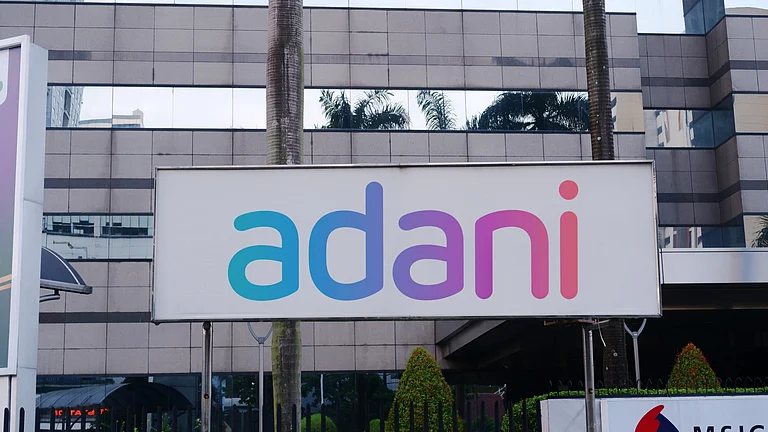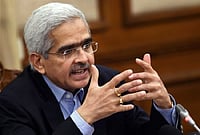20% TCS on International Credit Card: The holiday season is here and government, as per its recent notification, has indicated that people may need to set aside some extra cash to deal with the new '20 per cent TCS' rule. The international credit card expenditure done outside India would now come under the Liberalised Remittance Scheme (LRS), also attracting a higher i.e., 20% TCS, with effect July 1, 2023.
The unveiling of the Union Budget 2023-24 in February brought home many changes to the world of taxes, one of them being a proposal on Tax Collected at Source (TCS) for international transactions. Come May, the central government, in consultation with the Reserve Bank of India (RBI) has notified an amendment of rules under the Foreign Exchange Management Act (FEMA), making ‘20% TCS’ a trending topic.
Let’s understand what is 20% TCS on credit card and how it may affect your foreign trips.
20% TCS On Credit Cards – Explained
As mentioned before, TCS stands for Tax Collected at Source. It is a type of tax collected by the seller of selected goods and services from the buyer. In the context of Foreign Remittance Transactions, this tax is collected from a person when they send money abroad. However, sending money doesn’t usually just mean sending it to a person; it can also mean taking a trip abroad, shopping and buying assets etc.
As far as LRS goes, the idea behind having an LRS in place is to help users in making international transactions swimmingly. Before the Union Budget 2023, TCS, under the LRS was at 5 per cent for the remittances that exceeded Rs 7 lakh. However, with the new hike of 20% TCS, from the previous 5 per cent, everyone will have to pay this amount, except those engaging in transactions related to medical treatment or education.
Breakdown Of 20% TCS On Your Foreign Holiday/Trip
Let’s take, for instance, one plans an international trip to ‘XYZ’ country and the credit card has a limit of Rs 10,00,000. The person ends up using this credit card for all transactions in that foreign country like hotel bills, shopping, food etc. (Please note that the figures are hypothetical and given here only for explanation purposes. A real scenario, in a real world, after TCS gets implemented, may be different and subject to change)
- Scenario – Total spends: Rs 2,00,000
- 20% TCS on total spends: Rs 40,000
- Total amount spent: Rs 2,40,000
Hence, one will have to pay the 20% TCS on their credit card spends upfront. However, as per experts, this TCS can be claimed only at the time of filing an Income Tax Return (ITR). It must be also be noted that the transaction limits will also determine this tax, which has been explained below.
Pranay Jhaveri, MD - India and South Asia, Euronet said, "The TCS revision will significantly impact overseas tour packages and increase the cash outflow immediately for travelers. The tour operator will have to collect 20% of the cost of the overseas tour package from the travelers, irrespective of the travel cost."
Taxing The Rich?
With the amendment in FEMA, credit card transactions (being discussed) will also fall under the LRS limit of $2,50,000. Any foreign remittance or purchase made over and above this limit would require a prior approval from the RBI, something that is also being talked about after the ‘20% TCS’ announcement.
While the basic idea behind this TCS is to control tax evasion on specific goods, some experts also believe that the rich may now find it relatively difficult to spend big overseas, especially when it comes to spending over and above the LRS limit. This would also mean people planning their foreign trips and spends more carefully to avoid any breach of rules.
Experts Take On 20% TCS
Jhaveri adds, "While the increased rate for foreign remittance tax in India makes overseas money transfers more expensive, the revision will bring accountability among taxpayers. That said, long term impact on the economy can be computed after the TCS revision comes into effect......The revision will add compliance burden on banks and financial institutions. As far as taxpayers are concerned, exemption is available, and the money deducted by the banks in taxes as TCS can be adjusted against the overall tax liability."
Harsh Madhusudan, author and investor said, “Anything that can be taxed in a global context can be tracked by definition. Additional TCS on tax-paid money which you will then recover during tax filing achieves what? Working capital for Government? TDS is on what you owe – one doesn’t owe anything here. Even so, 20%?”
Ravisutanjani, former Vice President, Testbook explains in his Twitter post, “Will it hurt Indian Credit Card Industry? Personal View, Yes. Many Premium Credit Cards such as Infinia, Magnus, Reserve used to offer great reward points on International Transactions. So even after Markup & Taxes, the Value back on Foreign Spends were great. But now people need to plan their spends accordingly as 20% TCS on Spends needs to be paid.”
Another tax expert, Ajay Rotti, founder and CEO, Tax Compass, in his Twitter post said, “Dear @nsitharaman - TCS on international use of credit cards is not something you should go ahead with. It impacts a lot of business travelers who spend on behalf of the company. It serves no purpose with TCS on the employees name and it can't be on company name!”
According to many experts, the step of imposing 20% TCS is also aimed at increasing the central bank’s grip on foreign remittances, which sometimes, become a wobbly street to walk-on. It may also lead to more TCS cash flow and more people under the ambit of this tax along with compliance.
However, since the central government has merely proposed this amendment, experts are waiting for more details on the same in order to understand the implications. As of now, till June 30, the 5 per cent TCS rule stays.






























